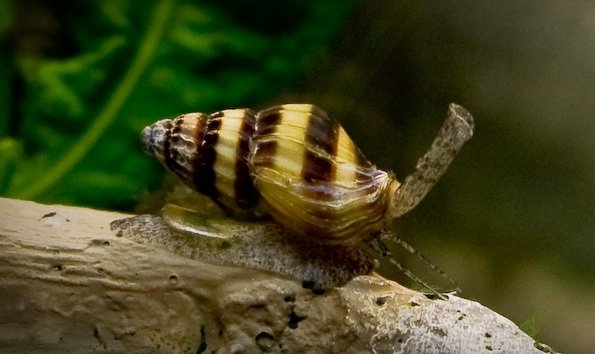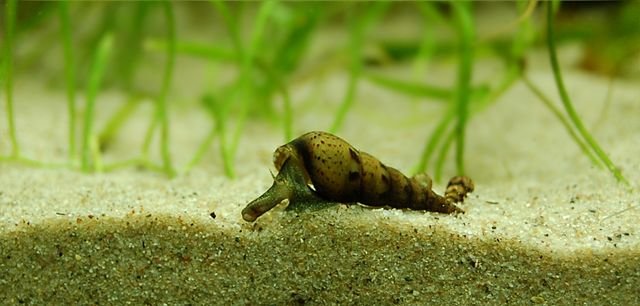Australia.- Climate change and ocean acidification has the potential to reduce the quality of seafood, with flow-on effects for future food security and ecosystem stability, according to new Southern Cross University research.
The research, led by Associate Professors Kirsten Benkendorff and Brendan Kelaher, with PhD candidates Rick Tate, Roslizawati Ab Lah and Roselyn Valles-Regino, has been published in the Journal of Experimental Marine Biology and Ecology and Marine Drugs.
Professor Benkendorff and the team exposed tasty marine snails (whelks) to future ocean climate change conditions for 35 days to evaluate the impact on the species.
“We found a clear deterioration in nutritional quality which may impact both the value and sustainability of whelk fisheries in the future. There were clear signs of physiological stress leading to reduced energy reserves for growth, survival and reproduction,” Professor Benkendorff said.
“The most significant finding was the massive drop in protein. We detected significant interactions between temperature and pCO2 (partial pressure of CO2) induced acidification on the nutritional quality of the flesh.
“The lipid content of the whelk flesh was reduced by half under elevated temperature and the proportion of healthy polyunsaturated fatty acids (omega 3 and omega 6) was reduced by elevated temperature but not acidification.”
Professor Benkendorff said whelks were predatory molluscs eaten around the world, with large markets in China, Korea, India and South America.
“They are a really good source of protein and are well known as having healthy polyunsaturated fatty acids (omega 3 and omega 6),” she said.
Stay Always Informed
Join our communities to instantly receive the most important news, reports, and analysis from the aquaculture industry.
The experiment was conducted at the University’s National Marine Science Centre in Coffs Harbour, which has facilities to simulate ocean warming.
Professor Kelaher said the seawater in the experiments was warmed and acidified to replicate ocean conditions predicted for the year 2100.
“These findings suggest a double whammy for sustainable fisheries. If the quality of seafood is less in the future, people will have to eat more fish from climate-impacted fish stocks to get the same nutritional benefits,” he said.
Professor Benkendorff said there were many studies which provided evidence of the impacts of climate change on marine species, however few had investigated the potential consequences of ocean change on the quality or nutritional value of seafood for human consumption.
“In addition to the whelks, we have also tested the effects on turban snails which are commercially fished and found similar impacts on the fatty acid composition and reduced protein,” she said.
“Ocean warming has also been shown to impact the nutritional quality (polyunsaturated fatty acids) of phytoplankton at the bottom of the food chain. It is therefore likely that these effects will be passed on up the food chain with potential for greater effects on predatory marine fish and molluscs.”
Professor Benkendorff said the study highlighted the need for further research into a range of species.
“We need to understand the impacts to consider our options. In regards to seafood production, sustainable aquaculture could help mitigate the effects of both over fishing and ocean climate change.”
Reference (open):
Rick D. Tate, Kirsten Benkendorff, Roslizawati Ab Lah, Brendan P. Kelaher. 2017. Ocean acidification and warming impacts the nutritional properties of the predatory whelk, Dicathais orbita. Journal of Experimental Marine Biology and Ecology. Volume 493, August 2017, Pages 7–13. https://doi.org/10.1016/j.jembe.2017.03.006
http://www.sciencedirect.com/science/article/pii/S0022098116302799
Valles-Regino, Roselyn; Tate, Rick; Kelaher, Brendan; Savins, Dale; Dowell, Ashley; Benkendorff, Kirsten. 2015. “Ocean Warming and CO2-Induced Acidification Impact the Lipid Content of a Marine Predatory Gastropod.” Mar. Drugs 13, no. 10: 6019-6037.
http://www.mdpi.com/1660-3397/13/10/6019
Source: Southern Cross University
Editor at the digital magazine AquaHoy. He holds a degree in Aquaculture Biology from the National University of Santa (UNS) and a Master’s degree in Science and Innovation Management from the Polytechnic University of Valencia, with postgraduate diplomas in Business Innovation and Innovation Management. He possesses extensive experience in the aquaculture and fisheries sector, having led the Fisheries Innovation Unit of the National Program for Innovation in Fisheries and Aquaculture (PNIPA). He has served as a senior consultant in technology watch, an innovation project formulator and advisor, and a lecturer at UNS. He is a member of the Peruvian College of Biologists and was recognized by the World Aquaculture Society (WAS) in 2016 for his contribution to aquaculture.







